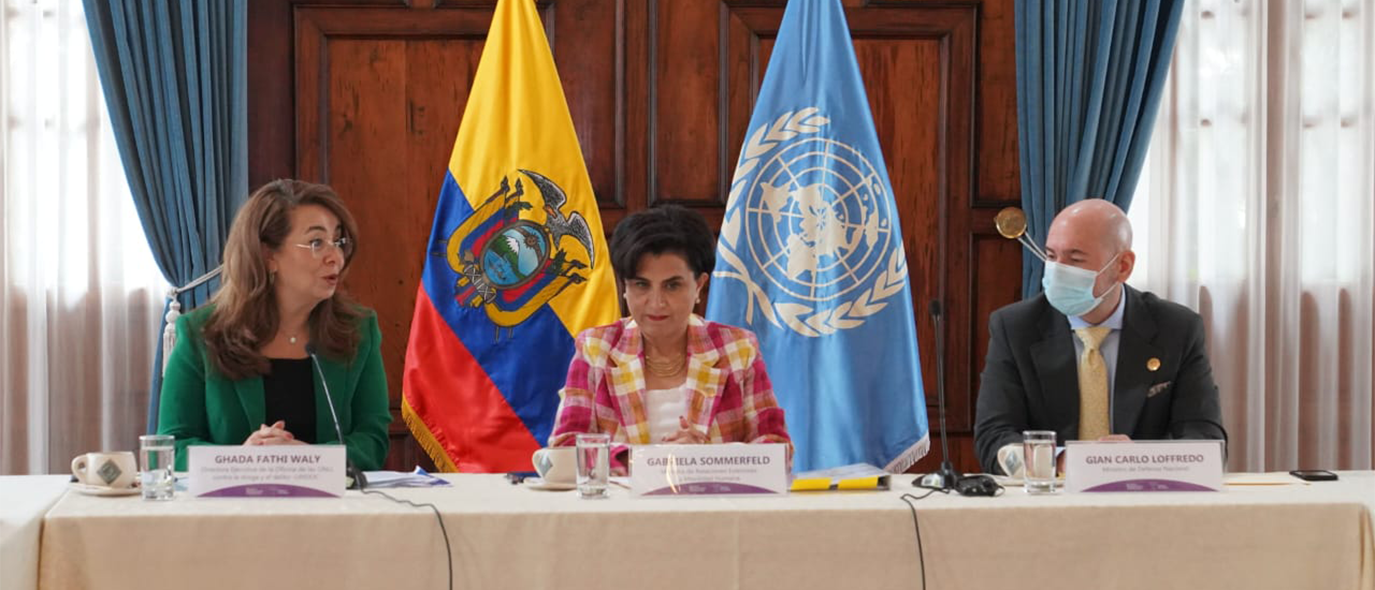
Amid a wave of increasing violence and criminal activity in the country, this week the UN Office on Drugs and Crime (UNODC) opened up a new programme office in Quito, Ecuador.
Speaking at the inauguration of the office in Quito, UNODC Executive Director Ghada Waly noted that "Ecuador now lies on the frontlines of the fight against drug trafficking, with its ports becoming a key transit route in the global cocaine trade.”
According to UNODC’s Global Report on Cocaine, the proportion of cocaine destined for Europe from Ecuador increased by more than 50 per cent in 2021. Cocaine and precursor chemicals are also being trafficked by land across the border from Colombia.
Moreover, Ms. Waly added, UNODC research shows that these activities are increasingly overlapping with other forms of organized crime, including crimes that affect the environment.
Additionally, according to UNODC’s Global Homicide Study, Ecuador saw a 407 per cent increase in homicides between 2016-2022, which can be attributed to intensifying violent competition among rival drug trafficking gangs.

Executive Director Waly with Ecuador's Chancellor of Foreign Affairs, Gabriela Sommerfeld, and Minister of Defence, Giancarlo Loffredo.
UNODC’s new programme office in Quito, Ms. Waly announced, will help provide the support and technical assistance needed to address these challenges.
Guided by the Engagement Plan developed with the Government of Ecuador, UNODC’s work will center on combating corruption in ports; strengthening prison controls; countering money laundering; reinforcing regional and international cooperation; supporting criminal justice reform; and enhancing maritime security.
Ms. Waly also met with members of Ecuador's cabinet to discuss the security situation in the country and reaffirm UNODC’s support to the rule of law and anti-corruption. “The issue of drug trafficking is a national effort but also a transnational one,” said César Zapata, national police commander of Ecuador. “The United Nations can contribute to the country by supporting the management of new psychoactive substances, as well as in the disposal of chemical substances.”
Together, UNODC and Ecuador have already achieved tangible results, Ms. Waly said. UNODC supported the government in seizing around 20,000kg of cocaine in 2023 and assisted in the safe disposal of 500 tons of cocaine and 420 tons of chemicals. UNODC trained over 400 law enforcement officials in Ecuador on tackling organized crime, corruption, human trafficking, and crimes that affect the environment, and strengthened cooperation with other countries.
Additionally, UNODC is working with UN Women and UNDP to strengthen community resilience in Guayaquil and to prevent the forced recruitment of children and adolescents who are exploited by organized criminal groups to sell drugs, collect extortion money, or commit violent crimes.
“Together we can ensure a safe and prosperous future for all Ecuadorians, free from the grip of organized crime,” Ms. Waly concluded.